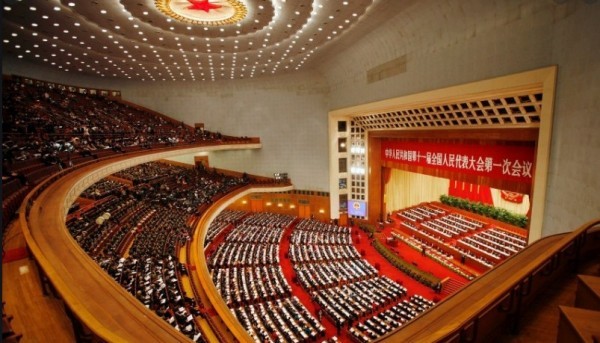Review №12 on Chinese Antitrust News from BRICS Antimonopoly Centre Expert
- Creation of a single all-China market
- Resumed the issuance of licenses for online games
- Platform control during the Shanghai quarantine
- Promoting overseas listing
- Industrial Internet development plan for 2022
- High quality development is built on trust
- Participants of local antimonopoly campaigns
- SAMR meeting with US-China Business Council
- "Listen to text message" function in WeChat
Creation of a single all-China market
The CPC Central Committee and the State Council of the People's Republic of China issued Opinions on Accelerating the Establishment of a Single All-China Big Market. The document emphasizes that it is necessary to create rules for a unified national market system, crush local protectionism and market segmentation, “break through” key “congestion” blocking economic circulation, promote the free circulation of goods, factors of production and resources in a wider area, comprehensively promote market transformation from big to strong. We are talking about the development of common market standards, the unification of infrastructure, the creation of uniform regulatory rules throughout China. A separate chapter is devoted to the fight against unfair competition, in particular, the strengthening of antitrust measures. The monopoly of digital platforms on data must be broken; prevent the use of data, algorithms and other technical tools to limit or eliminate competition; strengthen the identification of monopoly risks and prevent them; reform the regulation of natural monopolies, etc. It is also required to break down barriers between regional markets, to repeal regulations that impede equal access to the market.
The concept of a single all-China market and what changes its
formation will bring is revealed in the report of the Xinhua News
Agency at the link.
Resumed the issuance of licenses for online games
On April 11th, the State Press and Print Service resumed issuing licenses for online games. After a 263-day pause, 45 games received a registration number - the previous list was published in July 2021. The list did not include games from the giants of the Chinese gaming industry Tencent Holdings, NetEase and Bilibili, as well as from foreign developers.
Last summer, China stepped up regulation of the sector, allowing minors to play only one hour a day on Fridays, Saturdays and Sundays. The measures were introduced under the auspices of protecting the physical and mental health of young users. At the same time, the Economic Information Daily called online games a "spiritual opium" and an "electronic drug" that hurts minors. As part of the protection of children, Tencent has introduced a special mode with a limit on play time for teenagers and a complete ban on access for children under 12 years old.
Source: Xinhuanet
Platform control during the Shanghai quarantine
Shanghai, the epicenter of China's current coronavirus outbreak, is under strict quarantine. In such conditions, there is an increased demand for the delivery of products, and platforms do not always cope with timely supply. Alibaba, JD.com, Meituan and other digital companies have increased the number of couriers serving Shanghai and launched special marketplaces for residents of the city, but the capacity may not be enough to serve all users. To increase the chances that the order will be accepted and delivered, people living in the neighborhood make joint purchases and distribute products among themselves on their own.
The Municipal Market Office called on joint procurement service providers to comply with the law and supply goods at a reasonable price, clearly indicate the correct price and unit of measurement of products.
At the same time, the Cyberspace Administration has demanded that information platforms increase control over the spread of rumors that increase panic, such as unreliable reports of supply disruptions, protests or suicides. The main platforms have already confirmed their readiness to control information content and reported on the interim results of their work: in particular, as of April 9, the Xiaohongshu network (similar to Instagram) deleted 7,589 posts and 10,848 comments with violations and blocked 11 accounts.
Source: Weixin
Promoting overseas listing
Chairman of the Chinese Securities Regulatory Commission Yi Huiman confirmed the intention to expand investor access to equity markets. According to him, China will increase interaction between the national exchanges (Shanghai and Shenzhen) and the Hong Kong Stock Exchange, develop the Shanghai-London Stock Connect mechanism, confidently increase the bidirectional openness of commodity markets and financial futures. He also noted the need to accelerate the implementation of the new regulation of companies that issue securities or conduct an IPO abroad, to maintain the effectiveness of channels for entering foreign exchanges. Separately, Yi Huiman mentioned the task of facilitating the successful results of Sino-US cooperation in terms of audit: this could eliminate the threat of delisting Chinese companies from US exchanges.
On April 12, the US Securities and Exchange Commission (SEC) added 12 more Chinese companies to the list of potential delisting, including media resource Sohu.
Along with this, the authorities of the city of Shenzhen published opinions on the "cultivation" of strong market actors, where they expressed support for the entry of local companies into Chinese and foreign exchanges. By the end of 2021, 495 stocks were traded on various exchanges, and it is planned to increase the number to 600 by 2025. To this end, Shenzhen will establish a listing database, open a one-stop service for listing, improve support for post-IPO companies, and contribute to the active development of enterprises whose shares are already traded on stock exchanges.
Sources: The paper, 163.com, News.cnstock
Industrial Internet development plan for 2022
20 departments, including the Ministry of Industry and Informatization and the Development and Reform Committee, will participate in the implementation of China's Industrial Internet Development Plan in 2022. Infrastructure is declared a key priority in the plan: for example, the country will expand the operation of 5G networks. To help the market adapt to the new technological landscape, test sites for the Industrial Internet will emerge. The plan also involves the development of cooperation with Russia, Europe, the SCO and BRICS countries.
Sources: Global Times, Miit.gov
High quality development is built on trust
The People's Daily published an author's article on the importance of the credit system for the socialist market economy. The article points out the paramount need to rely on the institution of creditworthiness so that people “do not dare and cannot lose confidence”, as well as to improve the mechanisms of encouragement (for law-abidingness and honesty) and punishment (for violation of norms and loss of creditworthiness).
Recently, the CPC Central Committee and the State Council of
the People's Republic of China issued Opinions on Accelerating the
Creation of a Single All-China "Big" Market, aimed, in particular,
at showing the role of creditworthiness (trust) in the efficient
allocation of resources, reducing institutional transaction costs,
and preventing and eliminating risks.
Source: SAMR
Participants of local antimonopoly campaigns
A total of nine provinces, districts and cities under the Central Government have announced the focus of anti-monopoly campaigns from March-April to October this year. The local market authorities of Shanxi, Xinjiang, Gansu, Chongqing, Fujian, Shaanxi, Hebei, Tianjin and Hubei will focus on detecting and investigating anti-competitive practices in order to create a highly efficient, fair and competitive market that is uniform across China. The focus will be on abuses of administrative power that lead to the restriction or elimination of competition.
Source: Weixin
SAMR meeting with US-China Business Council
Deputy head of the Chinese market regulator Pu Chun held a video meeting with a delegation of the Board of the US-China Business Council (US-China Business Council). The parties discussed issues such as standards development, regulation of e-commerce platforms, food safety, law enforcement in relevant areas, etc. The meeting was attended by USCBC Chairman Tom Linebarger, USCBC Chairman Craig Allen, as well as representatives from Qualcomm, Pepsi, Underwriters Laboratory and others. member organizations. Pu Chun said that China welcomes the participation of companies from all over the world, including the United States, in the process of China's external opening up, their active contribution to the "dual circulation" system of the economy, so as to share the fruits of China's development and growth opportunities. To this end, the State General Administration for Market Regulation will continue to make efforts to create a legitimate and internationalized business environment.
Source: SAMR
"Listen to text message" function in WeChat
The WeChat super app now has a “listen to text message” feature: by selecting a text message in a chat, you can play its content with a single tap on the screen. You can activate it in the settings of the "care" mode, which increases the size of characters and contrast in the application for ease of use, including by the elderly and people with low vision.
Source: Russian.people




